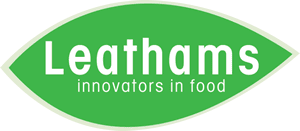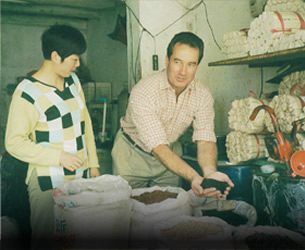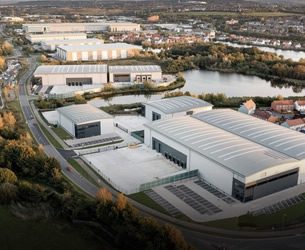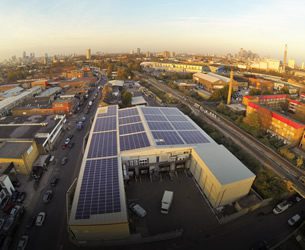Our Business
Leathams Ltd is the home of high-quality, innovative foods for people who passionately care about what they cook and serve. Established in 1980, with our head office based in London, our focus has always been magnified on continuing the innovation, customer service and excellence that’s become our hallmark. Therefore, we are proud to market and distribute globally sourced and imported foods to the Foodservice and Manufacturing sectors within the UK.
With the sales split into the Foodservice, and Ingredients, the rest of the business is structured to support each of these channels. With different supply departments having a unique role to play in our service:
- Procurement – A large and diverse team, speaking many different languages, making sure the right food is bought and that stock is managed efficiently.
- Technical – Led by industry technical professionals who collaborate with supply partners worldwide, improving systems and processes to exceed best practice in food quality, safety, and legality. This is supported by our BRCGS AA+ accreditation.
- Project Management – Focused on driving new products (NPD and EPD) through the business with pace and excellence.
Due to our strong relationships with our global supply base, we are committed to opposing all forms of human trafficking and modern slavery (see Annexure 1 for definitions) and upholding high ethical standards. Leathams Ltd will not tolerate the use of the organisation’s resources (human, material, or time) to support any activity constituting or connected to modern slavery, including human trafficking and exploitation.
Our Approach to Slavery and Human Trafficking
Leathams is thoroughly committed to ethical working practices. We view inhumane conditions such as slavery, exploitation, and human trafficking as completely unacceptable within the business or through our supply chains.
Due to our global presence, we recognise our responsibilities and have a zero-tolerance attitude. This awareness is paramount when liaising with suppliers in the UK and globally.
Employees are encouraged to report concerns anonymously through our Internal Management System, enabling swift management action.
Our Supply Chain
Our supply chain includes the procurement of raw materials and finished foodstuffs from approximately 26 different countries.
We have begun mapping our supply base to identify high-risk areas for modern slavery. Over the next 12 months, we will establish links with suppliers via Sedex (Supplier Ethical Database Exchange) to investigate labour standards, including modern slavery and trafficking.
Due Diligence to Counter Slavery and Human Trafficking
All our employees are based in the UK, with written contracts and access to the employee handbook. Recruitment is conducted directly by permanent Leathams staff. Agencies are only used to identify candidates, and all interviews are conducted face-to-face by Leathams employees to ensure eligibility to work in the UK.
Risk Assessment and Management
We will carry out comprehensive annual risk assessments to identify risks associated with modern slavery and human trafficking. Focus will be on control measures both within our organisation and supply chain.
Colleagues trained in risk identification will undertake and review assessments. Risks are categorised as High Risk or Low Risk.
Key Performance Indicators
Following completion of the Risk Assessment, KPIs will be defined to assess the effectiveness of control measures and compliance. These will be reviewed annually and reported to the Senior Leadership Team.
Current key objectives include:
- Completion of the Risk Assessment process
- Training for relevant colleagues
- Maintaining continuous progress to deliver the ESG roadmap
Training on Modern Slavery and Trafficking
Key colleagues are trained through the Stronger Together programme, a multi-stakeholder initiative aimed at reducing modern slavery, particularly forced labour, labour trafficking, and hidden third-party exploitation of workers. The programme provides guidance, training, resources, and a network for employers, labour providers, workers, and their representatives to collaborate in reducing exploitation.
All employees can access the information the company holds on their behalf (training record, appraisal, development plan).
This statement is made in relation to section 54(1) of the Modern Slavery Act 2015 and constitutes the company’s slavery and human trafficking statement, which is reviewed annually.
Date of last review: 04/02/2025
Nick Hastilow
Group Managing Director
Leathams Ltd
Annexure 1: Modern Slavery Definitions
Slavery occurs when someone is:
- Forced to work, through mental or physical threat
- Owned or controlled by an “employer”
- Dehumanised or treated as a commodity
- Physically constrained or has restrictions placed on his/her freedom of movement
Human Trafficking (also known as trafficking in persons) is a form of modern slavery. It involves the movement and/or harbouring of people against their will and under the control of others for the purpose of exploitation (financial or otherwise). The definition involves:
- An act: recruitment, transportation, transfer, harbouring, or receipt of persons
- By the means of: threat, force or coercion, abduction, fraud or deception, abuse of power or vulnerability, or the giving/receiving of payments or benefits
- For the purpose of: having control over another person for the purpose of exploitation










